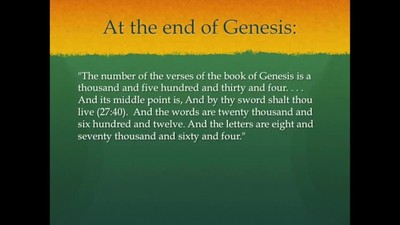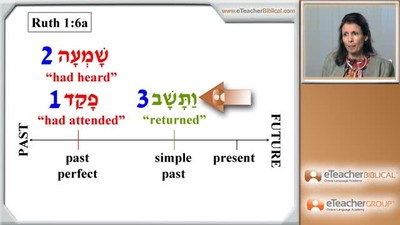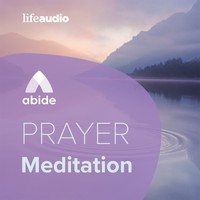Bible Study 1B: The Most Important Book: the Preservation & Canonicity of Scripture, God's Word
The promises of Divine preservation have been validated by history. Over 5,600 known Greek manuscripts (MSS) of the New Testament exist, along with over 10,000 Latin manuscripts and over 9,300 copies of other early Bible versions. There is far more evidence for the Bible than there is for any other book of ancient history--whether the Illiad of Homer, the writings of Caesar, Plato, Tacitus, Pliny, Thucydides, Suetonius, Herodotus, Sophocles, Catullus, Euripides, Aristotle, or Aristophanes, the holy Scriptures have vastly more manuscript evidence that is incomparably closer to the time of composition. Numbers of New Testament MSS are identical in entire books. The Old Testament likewise has thousands of MSS validating its preservation. The Dead Sea Scrolls and other manuscripts from the Judean desert contain Biblical copies that are letter for letter identical to the printed Hebrew Masoretic text of over a thousand years later. Jewish scribes were also extremely careful in their copying practices, so that, for example, they counted every single word and letter of the Old Testament text. If a letter was omitted, an extra letter added, or one letter touched another, the entire manuscript was destroyed at once.
The sixty-six books of the Old and New Testament canon are also the correct books--no books have been removed nor have any books been added to the inspired Word of God. Christ promised that His true churches and people would receive His words (John 17:8), a pattern seen from the original giving of the Law under Moses onward. When Moses brought Israel the Law, God's people received it immediately as His Word. Likewise Daniel knew that the writings of his contemporary, Jeremiah, were God's inerrant Word (Daniel 9:2). The New Testament places the Gospel of Luke on the same level as the Pentateuch or Books of Moses (1 Timothy 5:18; Deuteronomy 25:4; Luke 10:7); the New Testament books were recognized as equal in authority to the revelation given through Moses. Peter, during his lifetime, recognized a canonical collection of Paul's epistles and called them "scriptures" (2 Peter 3:15-17); the apostle John knew his writings were God's error-free Word (Revelation 22:18-19), and so on. No church council or group of people much later in time picked and chose the books of the Bible; on the contrary, the Bible was revealed by God and received by God's people as His perfect Word as soon as the Holy Spirit inspired it. The King James Bible (KJB) can be trusted as God's Word translated accurately in English.
Because the Bible is God's inspired and preserved Word, it is as much God's speech as if one heard Him speak audibly. In light of this fact, people must obey commands such as:
"Study to shew thyself approved unto God, a workman that needeth not to be ashamed, rightly dividing the word of truth." (2 Timothy 2:15)
"Search the scriptures; for in them ye think ye have eternal life: and they are they which testify of me." (John 5:39)
Everyone must have the attitude expressed in Psalm 19:
The law of the LORD is perfect ... more to be desired ... than gold, yea, than much fine gold: sweeter also than honey and the honeycomb."
The Bible Study concludes with a review quiz over material in part 1A and 1B, asking the true/ false questions:
1.) The Bible is a good religious book, but it has some minor errors in it since it was written by man.
2.) Every word of the Bible is as much God’s Word as if the Lord actually spoke it directly to you out loud.
3.) Words in the Bible are in italics to show that they are important, to emphasize them.
4.) Science, archeology, and history all confirm that the Bible is true.
5.) There is more historical evidence that the text of the Bible has been preserved than there is for any other ancient document.
6.) The main reason that some people do not believe in the Bible is because there is not enough evidence for it.
7.) We must reverently study the Bible, since every one of its words is inspired by God and preserved by Him for us today.
Bible study #1B completes Bible study video #1A on the Bible as the Most Important Book. People watching should proceed to watch Bible study #2, the Most Important Being, namely, God. These Bible studies can be completed using the Bible study course materials on the FaithSaves website or in person with a trained Bible teacher by contacting one of the Bible-believing churches of Jesus Christ found in the church directory at FaithSaves.
Bible Study 1B: The Most Important Book: the Preservation & Canonicity of Scripture, God's Word
The promises of Divine preservation have been validated by history. Over 5,600 known Greek manuscripts (MSS) of the New Testament exist, along with over 10,000 Latin manuscripts and over 9,300 copies of other early Bible versions. There is far more evidence for the Bible than there is for any other book of ancient history--whether the Illiad of Homer, the writings of Caesar, Plato, Tacitus, Pliny, Thucydides, Suetonius, Herodotus, Sophocles, Catullus, Euripides, Aristotle, or Aristophanes, the holy Scriptures have vastly more manuscript evidence that is incomparably closer to the time of composition. Numbers of New Testament MSS are identical in entire books. The Old Testament likewise has thousands of MSS validating its preservation. The Dead Sea Scrolls and other manuscripts from the Judean desert contain Biblical copies that are letter for letter identical to the printed Hebrew Masoretic text of over a thousand years later. Jewish scribes were also extremely careful in their copying practices, so that, for example, they counted every single word and letter of the Old Testament text. If a letter was omitted, an extra letter added, or one letter touched another, the entire manuscript was destroyed at once.
The sixty-six books of the Old and New Testament canon are also the correct books--no books have been removed nor have any books been added to the inspired Word of God. Christ promised that His true churches and people would receive His words (John 17:8), a pattern seen from the original giving of the Law under Moses onward. When Moses brought Israel the Law, God's people received it immediately as His Word. Likewise Daniel knew that the writings of his contemporary, Jeremiah, were God's inerrant Word (Daniel 9:2). The New Testament places the Gospel of Luke on the same level as the Pentateuch or Books of Moses (1 Timothy 5:18; Deuteronomy 25:4; Luke 10:7); the New Testament books were recognized as equal in authority to the revelation given through Moses. Peter, during his lifetime, recognized a canonical collection of Paul's epistles and called them "scriptures" (2 Peter 3:15-17); the apostle John knew his writings were God's error-free Word (Revelation 22:18-19), and so on. No church council or group of people much later in time picked and chose the books of the Bible; on the contrary, the Bible was revealed by God and received by God's people as His perfect Word as soon as the Holy Spirit inspired it. The King James Bible (KJB) can be trusted as God's Word translated accurately in English.
Because the Bible is God's inspired and preserved Word, it is as much God's speech as if one heard Him speak audibly. In light of this fact, people must obey commands such as:
"Study to shew thyself approved unto God, a workman that needeth not to be ashamed, rightly dividing the word of truth." (2 Timothy 2:15)
"Search the scriptures; for in them ye think ye have eternal life: and they are they which testify of me." (John 5:39)
Everyone must have the attitude expressed in Psalm 19:
The law of the LORD is perfect ... more to be desired ... than gold, yea, than much fine gold: sweeter also than honey and the honeycomb."
The Bible Study concludes with a review quiz over material in part 1A and 1B, asking the true/ false questions:
1.) The Bible is a good religious book, but it has some minor errors in it since it was written by man.
2.) Every word of the Bible is as much God’s Word as if the Lord actually spoke it directly to you out loud.
3.) Words in the Bible are in italics to show that they are important, to emphasize them.
4.) Science, archeology, and history all confirm that the Bible is true.
5.) There is more historical evidence that the text of the Bible has been preserved than there is for any other ancient document.
6.) The main reason that some people do not believe in the Bible is because there is not enough evidence for it.
7.) We must reverently study the Bible, since every one of its words is inspired by God and preserved by Him for us today.
Bible study #1B completes Bible study video #1A on the Bible as the Most Important Book. People watching should proceed to watch Bible study #2, the Most Important Being, namely, God. These Bible studies can be completed using the Bible study course materials on the FaithSaves website or in person with a trained Bible teacher by contacting one of the Bible-believing churches of Jesus Christ found in the church directory at FaithSaves.
Today's Devotional
A Prayer for Parents to Be Patient with Their Children This Summer - Your Daily Prayer - July 24
Feeling stretched thin halfway through summer break? This honest prayer will help you breathe, reset, and find God’s strength to keep showing up for your kids with love.
Most Popular Right Now

GodTube Inspiration Cowboy Single-Handedly Stops Armed Robber

Jeremy Rosado Jeremy Rosado Music Video For Powerful 'Keep Holding On'

chris rupp Chris Rupp's Stunning A Cappella Rendition of 'Lift High The Cross'

Tauren Wells Tauren Wells Reflects on His Faith Journey and Musical Mission

Bill and Gloria Gaither Guy Penrod's Stirring Live Performance of 'Then Came The Morning'

GodTube Comedy Tim Hawkins' Hilarious Rant About an Odd Idea for a Business

GodTube Performances Kelly Clarkson Stuns with Cover of Billy Joel Classic

GodTube Cute Trio of Adorable Pups Excitedly Await the Ice Cream Truck

Hulahan Barnes Hilarious Ballet Routine Will Leave You In STITCHES

BibleStudy Tools Books of the Bible Rap | Bible Study Tools






















